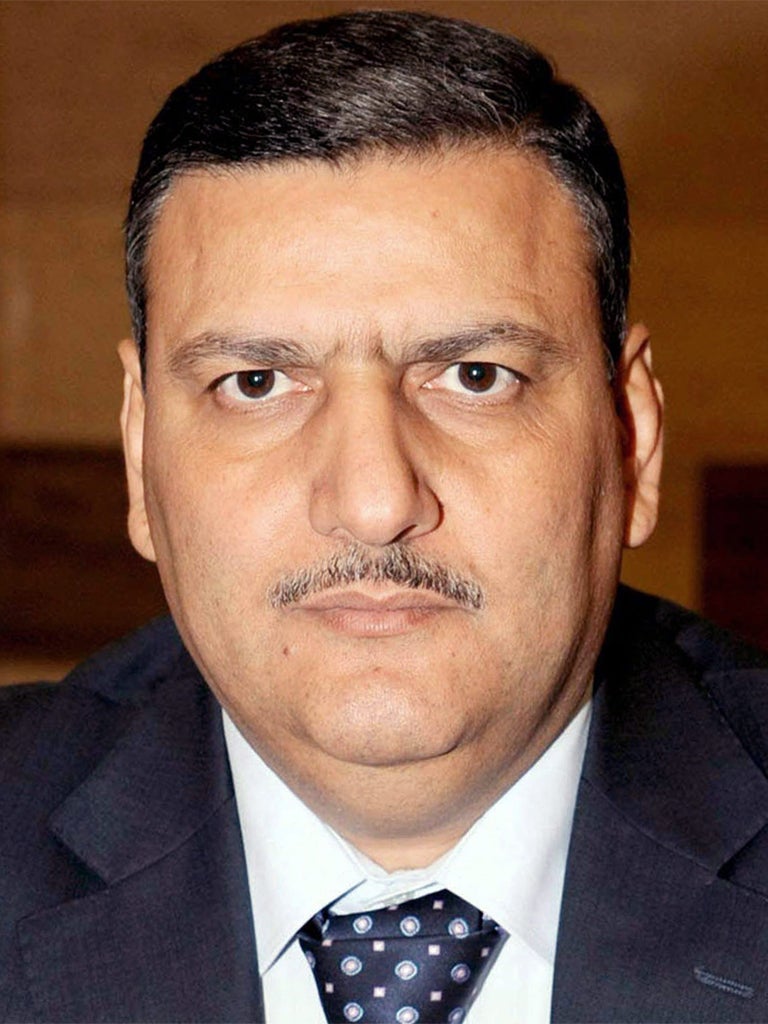Syrian activists blame pro-Assad militia for killing at least 86 in new massacre
Reports from Hama come amid opposition anger at appointment of Baath Party chief as premier

Fears that Syria is spiralling into a bloody civil war were renewed last night amid claims that at least 86 people, including women and children, had been killed by pro-government forces in Hama province.
A spokesman for the Syrian National Council, the main opposition coalition, said there had been a "massacre" in the villages of Qubair and Maarzaf.
These latest deaths come less than two weeks after 108 people, nearly half of them children, were executed in the Houla area by armed groups that witnesses said were Assad loyalists.
The killings also emerged against a backdrop of anger among Syrian activists and opposition politicians after a reviled former Baath Party chief was named the new Prime Minister.
Violence erupted in Hama province yesterday evening, with activist groups reporting that Qubair had come under heavy attack and shelling from security forces. According to the activists, most of the killings were carried out by a pro-regime militia called shabiha, who, armed with guns and knives, carried out a "new massacre" at a farm in the village.
Those killed were shot at close range and stabbed to death, with victims including women and children under the age of two, activists claimed. They said that some of the bodies were later burnt in houses which were set on fire and others were taken away by the shabiha.
Rami Abdul-Rahman, the head of the Britain-based Syrian Observatory for Human Rights, said he had gathered the names of 23 people killed in shelling and other attacks. But the Local Co-ordination Committees, an activist group, said at least 86 were dead. Mohammed Sermini, spokesman for the opposition Syrian National Council, said: "We have 100 deaths in the villages of Al-Kubeir and Maarzaf, among them 20 women and 20 children."
Independent confirmation of the killings has still to be obtained, but Mr Abdul-Rahman called on UN observers to visit the area immediately. "Do not wait until tomorrow in order to investigate this latest massacre," he said.
Meanwhile, any hope for a political resolution to the conflict, which activists say has left 13,000 dead since March last year, seemed increasingly distant with the installation of Dr Riad Hijab as Syria's Prime Minister.
Dr Hijab oversaw a deadly crackdown against pro-democracy protesters last year and critics have condemned his appointment as little more than a fig leaf for democracy.
The politician, who prior to yesterday's promotion was Minister of Agriculture, briefly served as Governor of the city of Latakia during the early days of last year's uprising.
Under his watch more than a dozen people were killed by gunfire when security forces were drafted in to quell protests, which had erupted against the government in March. At the time, Syrian officials said that civilians and government forces had been among the dead. A statement from the Syrian news agency quoted Dr Hijab as saying that violence had been caused by unidentified gunmen targeting "innocent citizens". The statement added that Dr Hijab had commended the co-operation between citizens and security forces which had arisen from a "plot targeting the Syrian model of co-existence". His rise to the top job comes after last month's widely criticised parliamentary elections.
The poll was the first held under a revised constitution that allows new political forces to challenge the hegemony of the Baath Party. President Bashar al-Assad hailed it as a key moment in Syria 's political transition.
But the elections, along with Syria's new Prime Minister, have been panned by activists who believe the Syrian regime is not serious about reform. Opposition politicians boycotted the vote in protest. Yesterday, the French government said the appointment of Dr Hijab was little more than a "masquerade". A French foreign ministry spokesman said President Assad "remains stubbornly deaf to the demands of his people".
Meanwhile, helicopters and tanks pounded rebel neighbourhoods in Latakia, according to activists. The clashes were reportedly some of the worst since last year, when Dr Hijab was Governor of the city.
The continued violence has left the ceasefire peace plan sponsored by Kofi Annan in tatters. The West and Russia appear no closer to negotiating a route out of the quagmire.
Foreshadowing Mr Annan's proposal for an expanded contact group on Syria, Sergei Lavrov, the Russian Foreign Minister, called for a meeting of Western powers with Iran and Turkey.
Subscribe to Independent Premium to bookmark this article
Want to bookmark your favourite articles and stories to read or reference later? Start your Independent Premium subscription today.

Join our commenting forum
Join thought-provoking conversations, follow other Independent readers and see their replies